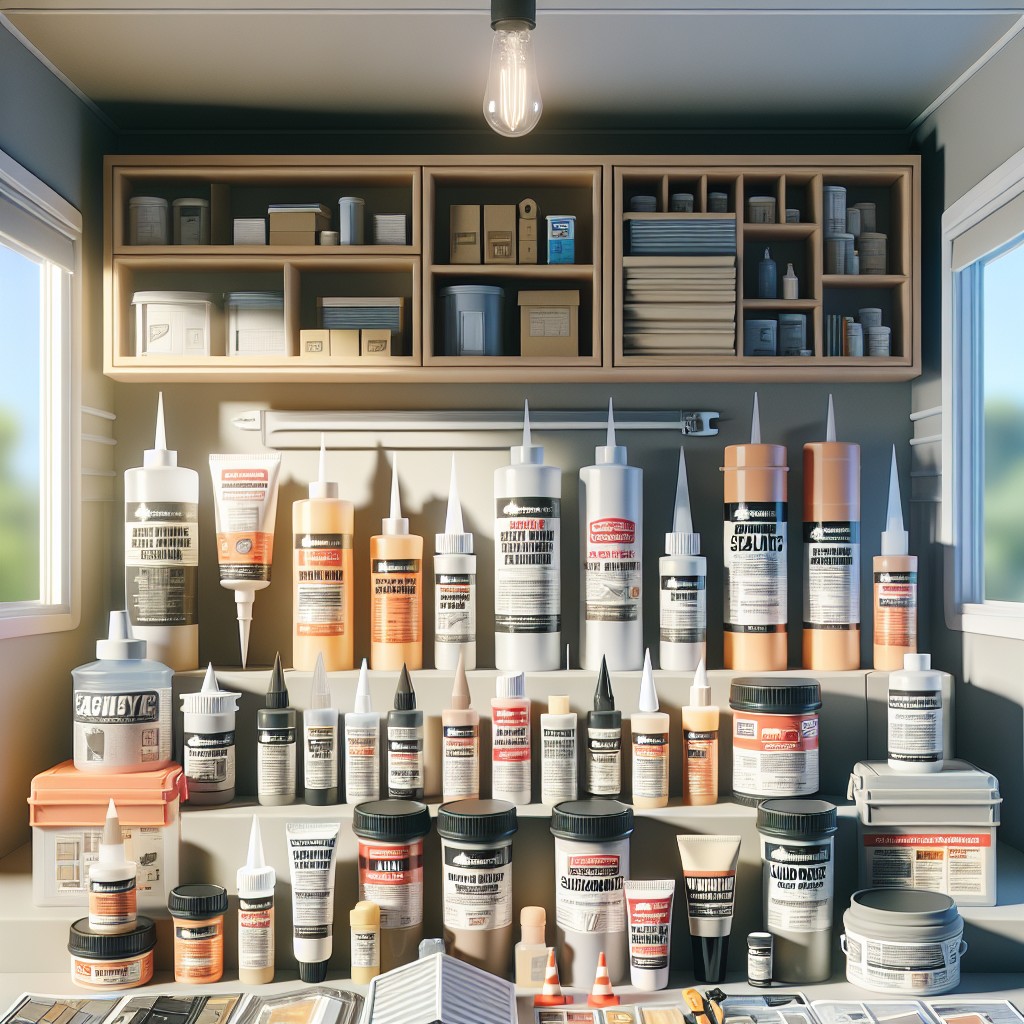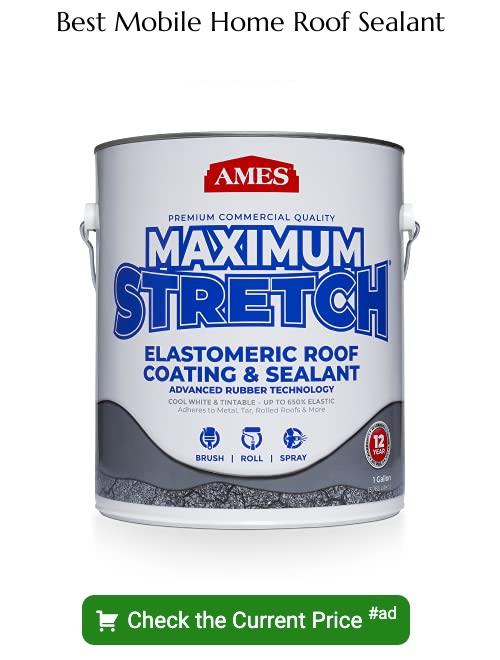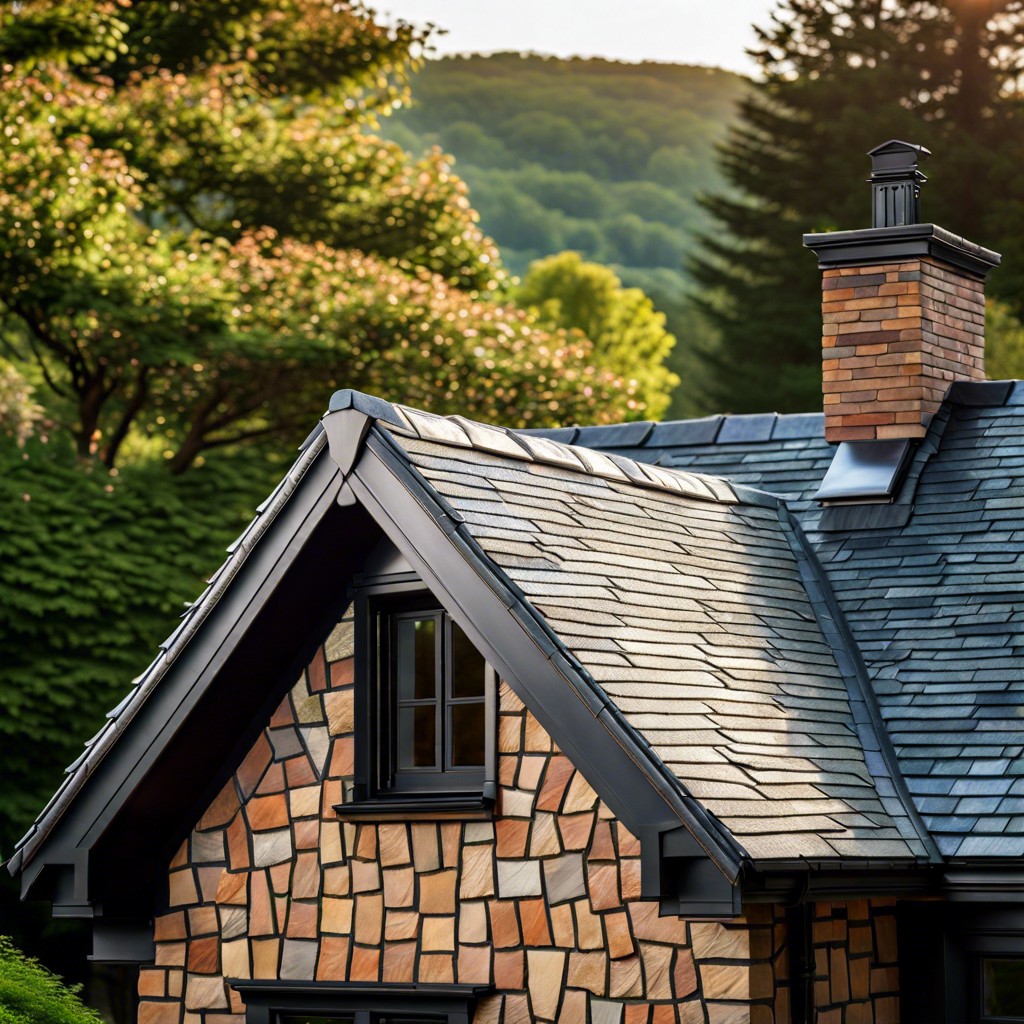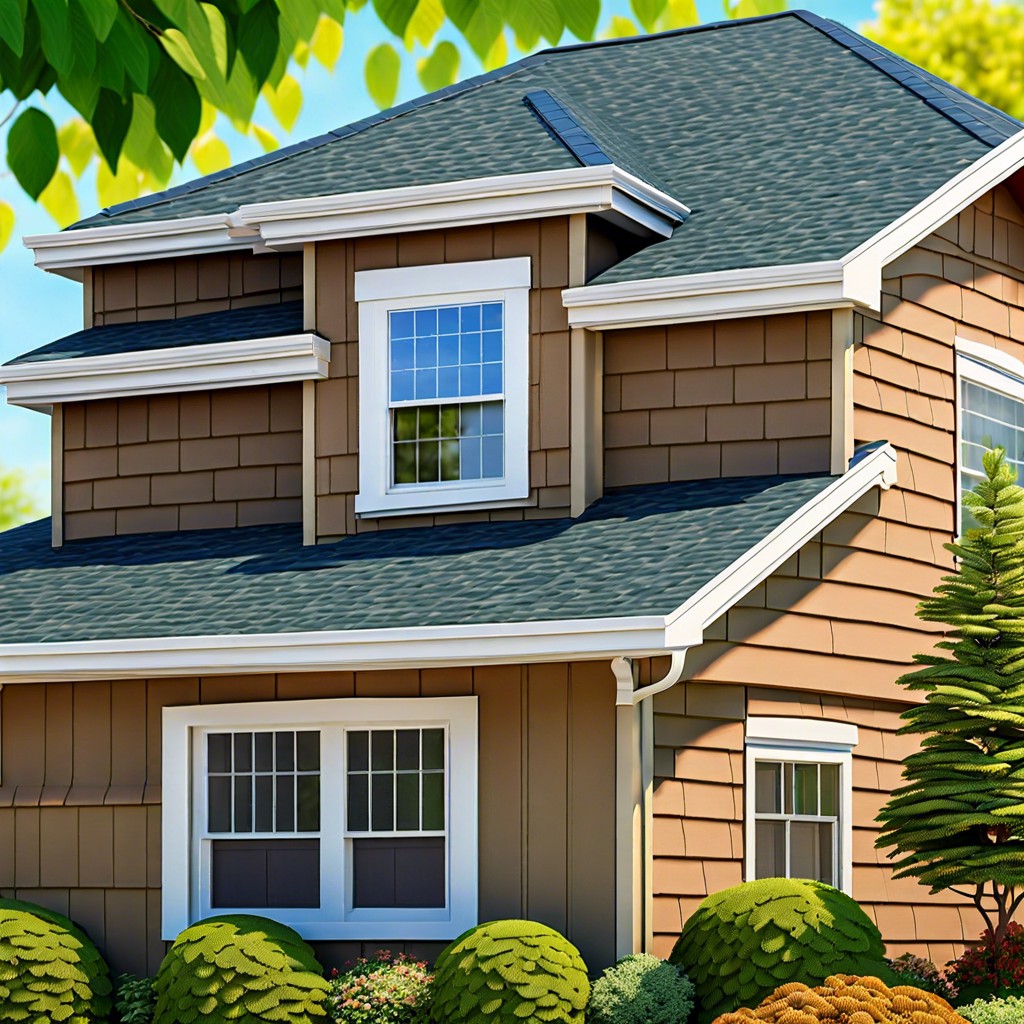Last updated on
Discover how to protect and prolong the lifespan of your mobile home with the most effective roof sealants available on the market.
Key takeaways:
- Acrylic sealants: Economical choice with reflective coating, may become brittle.
- Silicone sealants: Superior flexibility and weather resistance, withstands UV rays.
- Butyl rubber sealants: Robust adhesive and waterproofing, more challenging application.
- Polyurethane sealants: Strong resistance to impact and traffic, ideal for mechanical stress.
- Consider climate, roof material, and maintenance preferences when choosing.
Types of Mobile Home Roof Sealants

Acrylic sealants are water-based and easy to apply, making them an economical choice for mobile homeowners. They provide a reflective coating that can help reduce cooling costs. However, acrylics may not be the best option for areas with frequent temperature fluctuations, as they can become brittle over time.
Silicone sealants, on the other hand, offer superior flexibility and resistance to weathering. They withstand UV rays, rain, and temperature extremes without cracking or degrading. Silicone’s durability makes it a preferred option for many mobile homes, albeit at a higher cost compared to acrylic sealants.
Butyl rubber sealants deserve mention for their robust adhesive properties and excellent waterproofing capabilities. While they are effective in sealing various roofing materials, their application can be more challenging, and they may require more frequent touch-ups.
Polyurethane sealants are another option known for their strong resistance to impact and traffic. This choice is well-suited for mobile home roofs that may encounter more mechanical stress or require a tougher sealant.
Ultimately, the best sealant for a mobile home roof depends on specific needs, including climate, roof material, and maintenance preferences.
Acrylic Sealants
Acrylic sealants offer a cost-effective solution for mobile home roof maintenance. They are water-based, making them easy to apply and clean up after use. Their elasticity allows for slight movement with temperature changes, which is essential for mobile homes that can expand and contract.
Typically, acrylic sealants require reapplication every 2-3 years, so they might not be the best choice for those looking for a long-term solution. However, they are environmentally friendly and available in a variety of colors, which allows homeowners to match the sealant to their existing roof for aesthetic consistency.
Remember that acrylic sealants perform best when applied in moderate temperatures and dry weather conditions to ensure proper adhesion and curing.
Silicone Sealants
Silicone sealants stand out for their exceptional flexibility, which makes them ideal for the expanding and contracting surfaces of mobile home roofs. Their inherent resistance to weathering means they can withstand harsh UV rays without degrading, maintaining their integrity for years. Unlike some other sealants, silicone doesn’t become brittle or discolor over time, ensuring a consistent appearance.
In terms of waterproofing, silicone provides a formidable barrier against water, preventing leaks that could lead to costly damage. Its non-sag properties make it easy to apply, even on vertical surfaces or tricky roof angles. Once cured, a silicone sealant forms a seamless membrane that practically eliminates the potential for water penetration.
Moreover, silicone can be applied over many existing roof coatings, which simplifies maintenance and repairs. It’s also environmentally friendly with low volatile organic compound (VOC) emissions, contributing to better indoor air quality for your mobile home. When it comes to cure times, silicone is efficient, generally setting faster than other options, which reduces the downtime of your roofing project.
Factors to Consider When Choosing a Roof Sealant
When selecting a sealant for your mobile home, pinpointing the right fit hinges on several pivotal aspects. Foremost, assess the adaptability of the sealant to frequent temperature swings and exposure to varying elements, ensuring it can withstand your region’s specific climate. Additionally, longevity should be a critical factor; a durable sealant minimizes the necessity for frequent reapplications, thereby offering a cost-effective solution in the long run. Compatibility with your existing roof material also cannot be overstated; this ensures a proper bond and effective sealing action. Finally, ease of application should be considered to ensure a seamless DIY project or to potentially reduce professional installation costs.
Weather Resistance
Mobile homes are often exposed to a myriad of weather conditions, from scorching sunlight to torrential rain, making the weatherproof quality of a roof sealant crucial. High-quality sealants provide a barrier against moisture intrusion, preventing leaks that could lead to costly water damage. Look for products with excellent elasticity that can expand and contract without cracking, ensuring that performance is not compromised as temperatures fluctuate.
Sealants with high UV resistance will also prevent premature degradation, maintaining their integrity and adhesion even under constant exposure to the sun. Consider the local climate: areas with heavy snowfall require sealants capable of withstanding freeze-thaw cycles, while in hurricane-prone regions, a sealant’s wind uplift resistance is paramount. Choosing a sealant with the right weather-resistant properties can extend the lifespan of your mobile home’s roof significantly.





